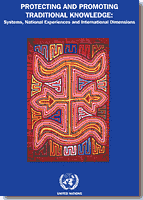
The preservation, protection and promotion of the traditional knowledge, innovations and practices of local and indigenous communities (TK) is of key importance, particularly for developing counties. Their rich endowment of TK and biodiversity plays a critical role in their health care, food security, culture, religion, identity, environment, sustainable development and trade.
But this valuable asset is at risk in may parts of the world, and there are concerns that this knowledge is being used and claimed by third parties, with few of the benefits being shared with the original TK-holders and without their prior informed consent. While such concerns have pushed TK to the forefront of the international agenda, the best ways of addressing the range of issues related to its preservation, protection, further development and sustainable use are not yet fully clear.
This book contains a collection of 46 papers prepared in conjunction with an UNCTAD Expert Meeting. The papers, written by experts from all regions of the world as well as international organizations, address three key issues:
- What is the role of TK, particularly in the health care and agriculture sectors?
- Why and how should TK be protected?
- How can TK best be harnessed for development and trade?
The answers to these questions are evolving as experiences are gained and shared. Moreover, as the types of TK, and related concerns and objectives, are unique to each country and community, solutions must also be tailored to local circumstances. By presenting a wide range of experiences and perspectives on this subject, this book provides the reader with ample food for thought in designing such solutions.


